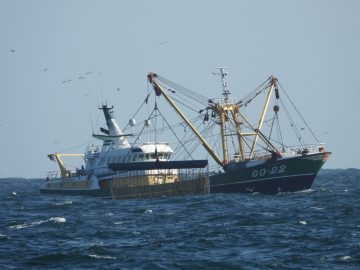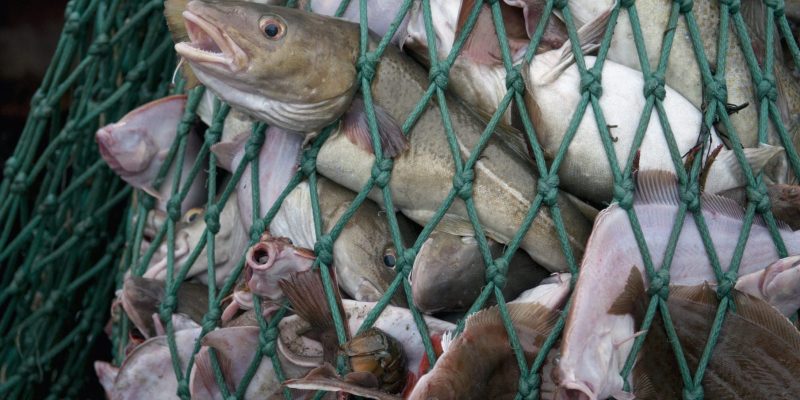The poisonous intoxication and excessive overfishing of the ecosystem sluggishly impact the production of our oxygen.
The disturbing visualization of living through an era in which humans are capable of slowly damaging the motherly and life-giving planet that we call Earth. As we all know, 71 percent of our planet is covered in an everchanging hue of blue waters. These waters are home to coral reefs and living species. Which massively assist in the process of producing the oxygen, we as individuals depend on to live. Scientists believe that 50% to 80% of the earth’s oxygen comes from the ocean.
UK marine ecosystems
The United Kingdom has some of the best marine ecosystems that are habitats for a diversity of species. Nonetheless, these marine habitats are under threat by factors like bycatching, pollution, shipping, and overfishing. The poisonous intoxication and excessive fishing of the ecosystem sluggishly impact the production of our oxygen. The fishes and other marine species excretion is a nutrient that helps sustain coral reefs.
These coral reefs would suffer immensely if the fish that helped sustain them were to vanish. This is slowly becoming a reality with overfishing happening in most oceanic waters. The global production of fishing is now nine times higher than it was during the 1950s. According to the U.Ns secretary generals (representative of the ocean writing and worlds economic forms website), the primary issue in this case is that much of the fishing behind this inflation is economically impractical. Thus, it is effectively sustained by massive government subsidies. Some of these subsidies contribute towards illegal, unreported, and unregulated fishing.
Illegal and unregulated fishing
Illegal and unregulated fishing are the result of fisheries taking more than the allowed set amount to catch. Due to this, many fish species are gradually going extinct. As a consequence to the human destruction, the entire system may collapse within a few years. Furthermore, the surplus fishing of the endangered marine population has also resulted in the reduction of productivity of fish. Thus, lowering fish stocking. Some fisheries have specialized equipment and advanced technology which allows them to catch deep-sea fish. However, since they have to spend months in the middle of the deep blue sapphire waters, most of the fish will have aged by the time their reach land. The ages fish which does not sell gets thrown to waste.

The UK fishing industry
The UK fishing industry is ranked sixth amongst EU countries that contribute to the issue of overfishing. In the span of 19 years the UK has received 1,759,000 tonnes of quota above the recommended scientific advice. This means that the UK has overfished more than any of the other EU member states. Our Fish Program Director Rebecca Hubbard comments that: “The UK fishing industry has benefited massively from overfishing whilst it was apart of the EU for the last twenty years.” The UK fishing fleet has a new profit margin of 26%, making is one of the most profitable ones in the EU. Salmon is the highest export in fish for the UK while tuna is the largest import.
Fresh water flourishes
According to the World Wide Fund for Nature (WWF), the latest data results illustrate that there is more fish in rivers and lakes, than there are in the oceans. The WWF reports that the World’s Forgotten Fishes, released a report from sixteen global conservations. They outlined that “nearly one in three species is now threatened with extinction and global freshwater biodiversity is declining at twice the rate of that in oceans or forests”. They have also released data which suggested that eighty species of freshwater fish have been declared ‘extinct’. Sixteen of which were declared extinct in 2020 alone. It is significant to point out about freshwaters, because it highlights that not only oceanic fish species are affected, but also species in freshwaters.
The Chief Adviser at WWF, Dave Tickner has said: “Freshwater habitats are some of the most vibrant on earth, but – as this report shows – they are in catastrophic decline around the world. Nature is in freefall and the UK is no exception. Wildlife struggles to survive, let alone thrive, in our polluted waters.”
Illegal fisheries and subsidies
There are many ways in which the government can contribute to reduce subsidies. Providing lower-cost fuel, equipment and shipping boats is just a few of the options. Creating more marine protected areas would have a massive impact on overfishing. Having no-catch areas will allow fish and other marine species population, as well as “their ecosystem to recover and replenish themselves”. This is to guarantee that fishing will be possible for the future generation. At the moment, only two percent of the world’s oceans are protected, and only less than one percent are safeguarded from any type of fishing.
The Marine Conservation Institute aims to increase the number of tenfold. As well as have ten percent of our ocean be part of the Marine Protected Areas by the year of 2020. Any input that will deplete fish supplies and encourage fishing, will help to restore our marine ecosystem. The U.N secretary generals (envoy of the ocean) alludes that if large scale fishing fleets send out smaller operation and if we were to remove all the harmful and illegal fisheries subsidies, we would be able to increase the fish biomass by 12.5 percent, by the year of 2050.


 Women struggles as independent business owners
Women struggles as independent business owners